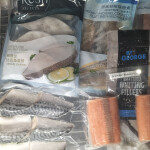Reaction is pouring in to an investigative report into slavery and indentured labor aboard foreign charter fishing vessels operating in New Zealand waters.
Conducted by Benjamin Skinner, a senior fellow at the Schuster Institute for Investigative Journalism at Brandeis University, and published in Bloomberg Businessweek on Tuesday, the report “Fishing as Slaves on the High Seas” focused on Indonesians working on the South Korean-flagged vessel Melilla 203, which was seized in Christchurch, New Zealand, last December. Catches from Melilla were bought and processed by Christchurch’s United Fisheries, which then sold the same species in the same period to U.S. seafood importers and distributors.
A subsequent report revealed that Walmart and Safeway, two of the United States’ largest retailers, are now investigating the situation.
Sanford Ltd., one of New Zealand’s largest seafood suppliers, was also cited in the report, and on Wednesday the Auckland-based company responded to the alleged labor abuses aboard foreign charter fishing vessels.
“Sanford abhors inhumane treatment of crew on fishing vessels and will fully cooperate with any customers with concerns,” said Eric Barratt, the company’s managing director, in a statement on Wednesday, adding that Sanford is the only New Zealand company that has required 100 percent independent observer coverage on its charter vessels for more than 10 years.
“We have attempted to encourage other vessel operators to follow our lead but they have resisted on the basis of cost,” continued Barratt. “Independent observers have direct access to Sanford management and are able to relate any concerns as to treatment or issues with the crew conditions directly from the vessel to shore at any time. Within the industry and the crew community, Sanford vessels have a reputation of being the best paying and best treated hence the high return rate and a waiting list of crew wanting to join our charter vessels.”
He added, “While we take these latest allegations seriously, we believe the particular allegations made in the Bloomberg article regarding Sanford charter vessels have no factual basis. But we are conducting a further investigation.”
In a letter to Barratt, Tom Mazzetta, founder and CEO of Mazzetta Co., one of the United States’ largest seafood importers and distributors, asked for an explanation. “The purpose of my letter today is to try and better understand how the allegations made in Bloomberg against these foreign-chartered vessels could be possible with Sanford observers aboard these vessels. As you know, Sanford reports 100 percent observer coverage on all foreign-chartered vessels that supply the company, and has repeatedly claimed ‘no labor issues’ aboard the specific vessels named in the article. More generally, I am also concerned about allegations of unfair wage practices and an apparent lack of coordination with, and enforcement by, New Zealand’s Ministry of Agriculture & Forestry, as cited in Bloomberg.”
Mazzetta said his Highland Park, Ill.-based company has been doing business with Sanford for about eight years. He also penned a letter to customers assuring them that his company takes the allegation seriously and is investigating further. “We care tremendously about the products that bear our brand name and the people that are involved, at every stage, in bringing them to market,” said Mazzetta.
Henry Demone, CEO of High Liner Foods, which sells seafood to Safeway, told Fairfax Media New Zealand that he “abhorred” slavery and labor abuse and that the Canadian company “tries very hard to do the right thing.”
“In the case you’re talking about, we bought from a company whose labor practices in the (processing) plant were fine. We audited that. We didn’t audit the fishing vessels. But we relied upon a well-known New Zealand-based company and their assurance of 100 percent observer coverage,” he told the newspaper.
New Zealand Seafood Industry Council CEO Peter Bodeker also responded to the allegations in a New Zealand Herald report. “The New Zealand seafood industry does not condone the slavery and inhumane treatment that is being alleged, and, in fact, called for a government inquiry into foreign-owned fishing vessels in July last year,” he said.





